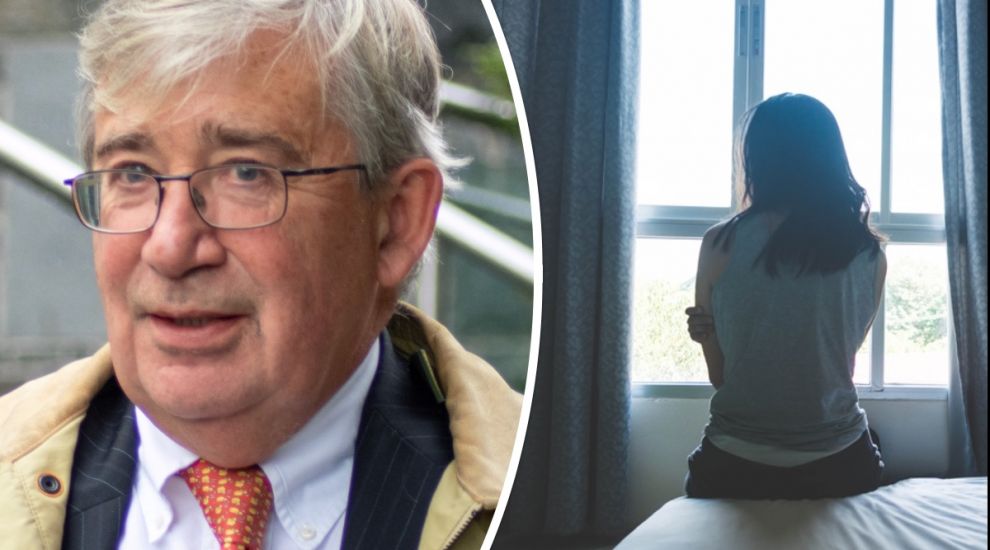


A States' debate next week on changes to sexual offences legislation should not turn on statistics, according to a Deputy who has seconded an amendment to delay one part of the proposed reforms.
The changes include one which would shift the evidential burden of proof to the defendant in sexual offences cases. The Committee for Home Affairs is asking the States to agree that the change should take effect from 1 March.
But Deputies Carl Meerveld and John Dyke have submitted an amendment which seeks indefinitely to delay the part of the changes which deals with the evidential burden of proof.
Deputy Meerveld said he supported most of the changes proposed.
“Deputy Dyke and I are not suggesting that this provision be thrown out - just that the commencement be delayed until proper consultation can be undertaken with the Criminal Bar and other appropriate bodies," said Deputy Meerveld.
"Deputy Dyke and I support the rest of the broader legislation and look forward to voting for its commencement on 1 March, except for this one paragraph.”
Deputies Meerveld and Dyke have expressed concern that the change they want to delay could lead to an increase in false accusations of sexual offences.
Idea that this will open the floodgates to false accusations is laughable. Office for National Statistics has estimated that a man stands a 0.0002% chance of being the victim of a false accusation - meanwhile 98.5% of victims never see the perpetrator brought to justice…4/5 pic.twitter.com/jmmTw4cxBN
— Gavin St Pier ???????? (@gavinstpier) February 9, 2022
Pictured: Deputy Gavin St. Pier, who originally proposed changes to the evidential burden of proof in 2020, referred to statistics which would mean that a man has more chance of being the victim of a sexual assault, including rape, than being the victim of a false accusation.
Express put the following questions to Deputy Dyke:
“I do not believe these sorts of alleged statistics are meaningful,” said Deputy Dyke.
“Each case involves two lives and an individual set of circumstances. It is so important to avoid excessive risk of improper convictions.
"The life of the defendant will be crushed forever. The concern is a libertarian one. It does not suggest that rape is not a serious crime that should be pursued and punished.”

Pictured: The chances of a victim of sexual assault seeing a charge brought against the perpetrator is less than one in 60.
The amendment to delay will be debated by the States next Wednesday, 16 February.
The President of the Committee for Home Affairs, Deputy Rob Prow, said it is essential that the new legislation is implemented.
“Society is constantly changing, as are the measures that jurisdictions put in place to protect the most vulnerable in their community,” said Deputy Prow.
“It is essential that the new sexual offences legislation is commenced as it will represent the Bailiwick’s commitment to modernise our outdated legislation and ensure that it is on par with competitive jurisdictions.
“Approval of the legislation is ultimately one for the Assembly. However, what I can and want to make very clear is that our Committee is wholly committed to doing everything we can to support the victims of sexual abuse and violence and supporting law enforcement in having the necessary legal tools to make people as safe as possible."
Deputy Meerveld believes that the original States' debate on the matter in 2020 illustrated why further consultation is needed.
He said: “In the initial debate, Her Majesty’s Comptroller stated: '…the amendment might put us in some unknown territory. I think the issue there is that whilst other circumstances which are set out in clause 4(2) of the Law more or less replicate UK legislation taken from the Sexual Offences Act 2003, the amendment does not - the amendment is new'.
“In response to another question, he [HM Comptroller] responded: 'I am not sure that I can help because it really goes back to the point that has been made that we are in unknown territory… until such time as the issue is raised in court, it is difficult to actually know how it will work out in practice.'"
Comments
Comments on this story express the views of the commentator only, not Bailiwick Publishing. We are unable to guarantee the accuracy of any of those comments.